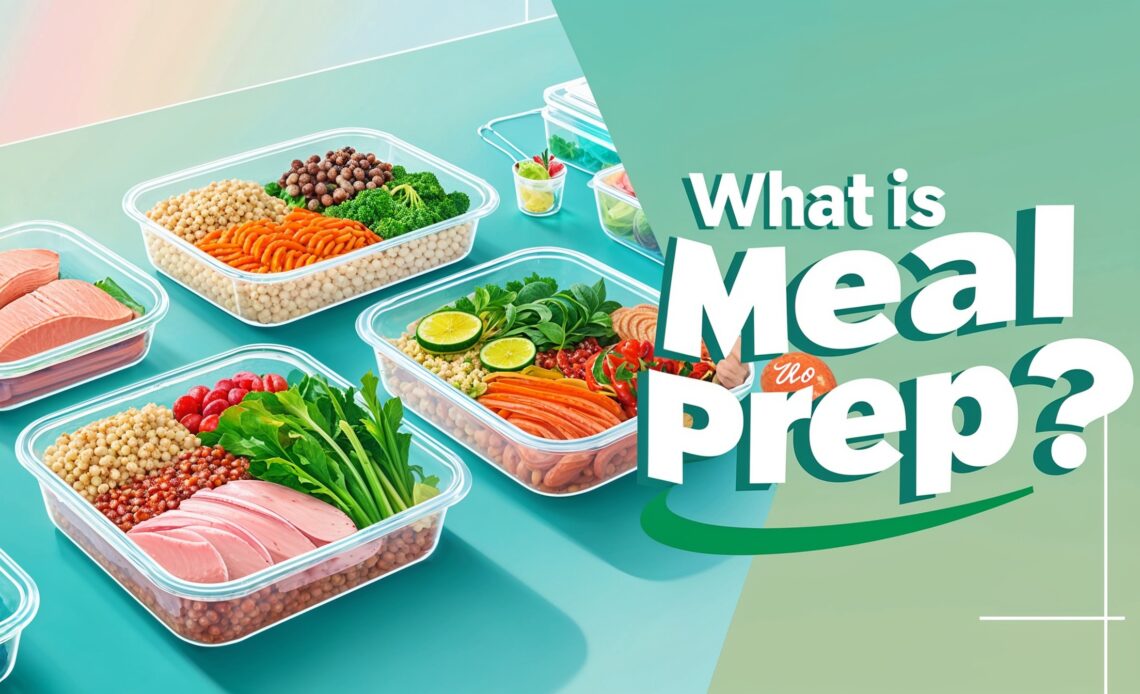
Meal prepping for beginners has become more than just a trend; it’s a lifestyle change that helps you stay organized and eat healthier. It’s a strategy that can also save you both time and money.
This comprehensive guide will introduce you to the fundamentals of meal prepping. It will explain its benefits and guide you through each step of the process.
Whether you’re a beginner or looking to refine your skills, this guide has everything you need. Start meal prepping with confidence today.
Table of Contents
Understanding the Basics of Meal Prep
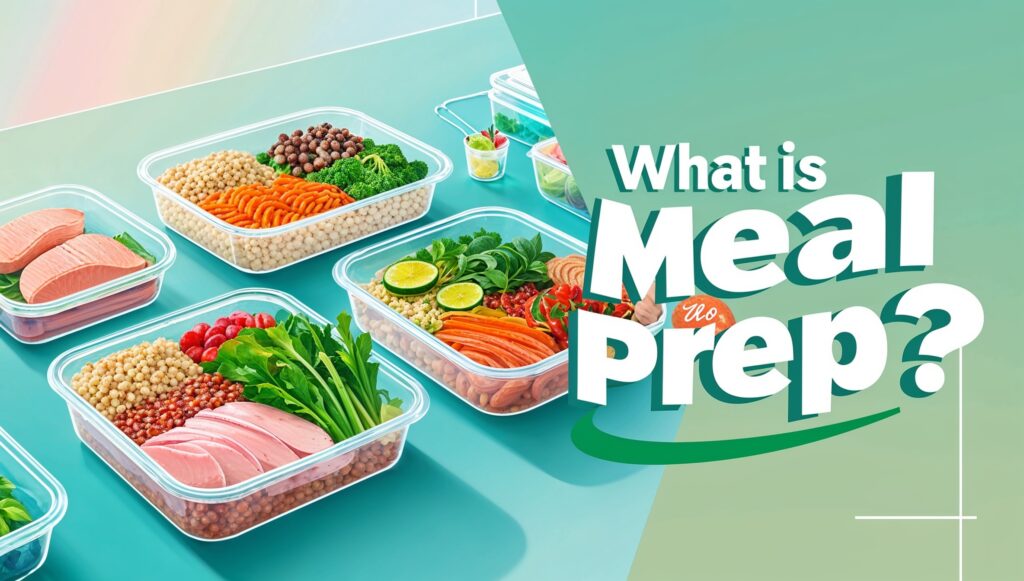
What is Meal Prepping?
Meal Prepping, short for meal preparation, is about planning, preparing, and packaging meals or ingredients ahead of time to streamline your daily routine. It can involve cooking in bulk to cover multiple meals, portioning out ingredients for quick assembly, or preparing complete meals that are ready to eat.
Benefits of Meal Prepping
Meal prep provides more than just a few extra minutes in your day. Here are some key benefits:
- Time-Saving: Instead of cooking daily, dedicate a few hours weekly to prep. You’ll have meals ready to go, saving time during your busiest parts of the week.
- Healthier Eating: By controlling ingredients and portion sizes, meal prepping makes it easier to stick to a balanced diet.
- Cost-Effective: Prepping your meals reduces the temptation for last-minute takeout, saving you money.
- Stress Reduction: Knowing your meals are ready removes daily meal decisions and adds a sense of organization to your week.
Essential Tools and Equipment for Meal Prepping
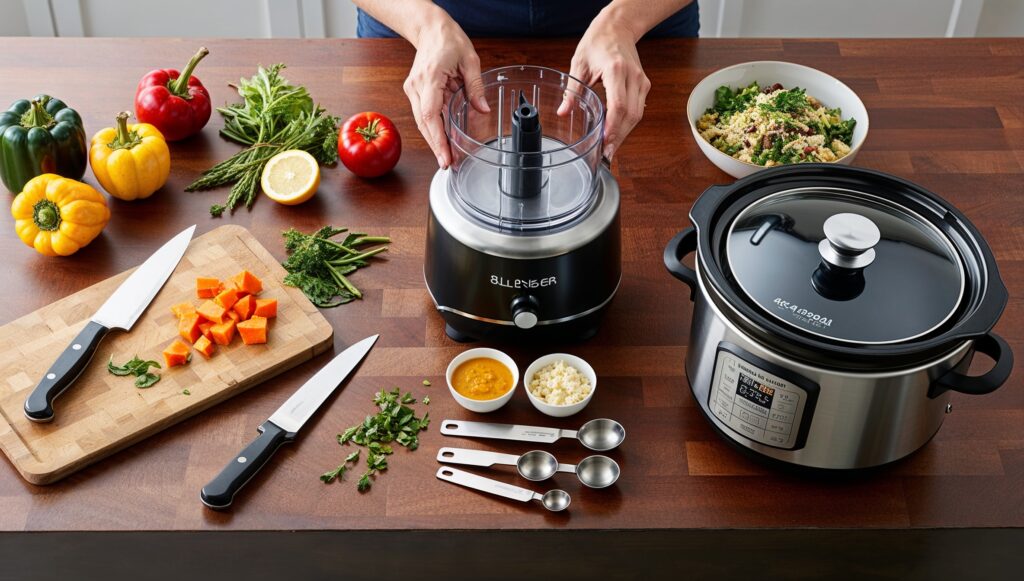
Must-Have Kitchen Gadgets
To maximize efficiency, a few essential tools will make meal prep much easier:
- Sharp Knives and Cutting Board: A good knife and sturdy cutting board are essential for chopping and dicing ingredients quickly.
- Blender or Food Processor: Ideal for smoothies, soups, and sauces, this equipment speeds up preparation for many recipes.
- Slow Cooker or Instant Pot: These appliances are great for bulk cooking and creating meals with minimal hands-on time.
- Measuring Cups and Spoons: Necessary for accurate portioning and following recipes precisely.
Containers and Storage Solutions
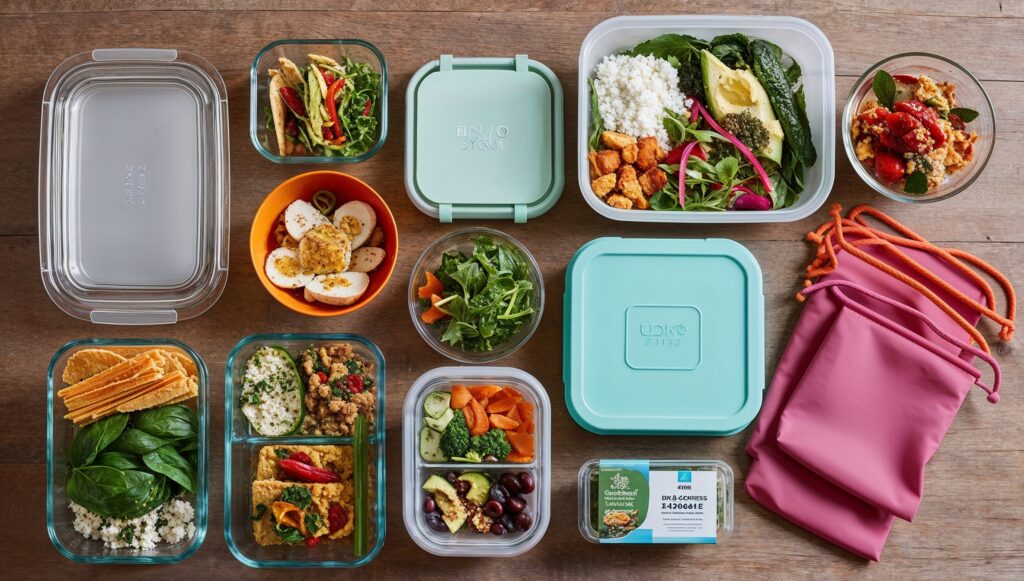
Investing in high-quality containers can make a big difference in keeping your meals fresh and easy to transport:
- Glass Containers: These durable, microwave-safe containers are eco-friendly and don’t retain food odors or stains.
- Bento-Style Boxes: Perfect for portion control and keeping meal components separate.
- Reusable Silicone Bags: Ideal for storing snacks, prepped ingredients, and freezer-friendly items.
Simple Steps to Start Meal Prepping
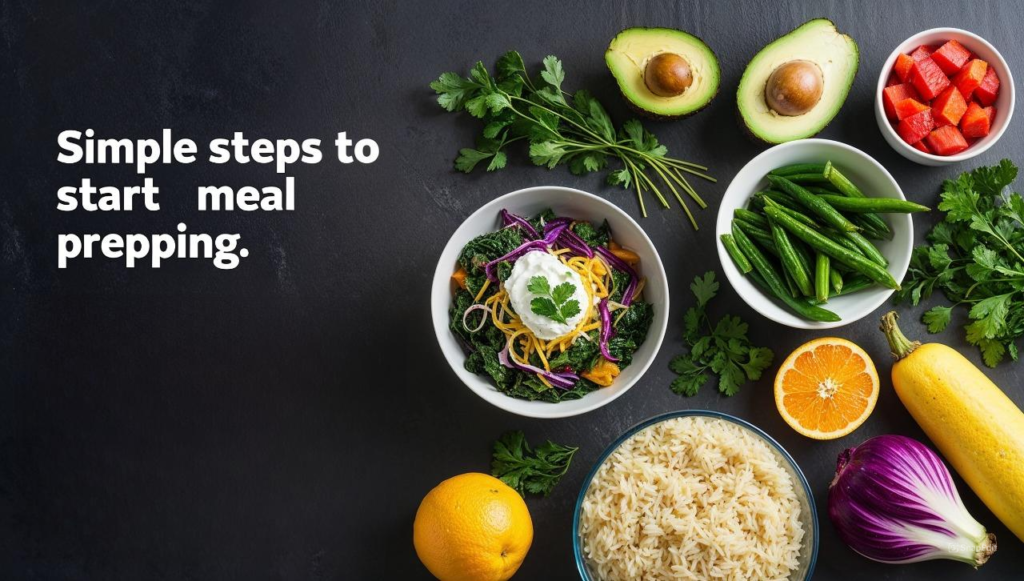
Planning Your Meals
Effective Meal Prepping begins with careful planning. Spend some time weekly creating a plan for your meals:
- Outline Your Meals: Consider what meals you’ll need for the week—breakfast, lunch, and dinner.
- Choose Recipes with Overlapping Ingredients: Selecting recipes that use similar ingredients reduces waste and streamlines shopping and prep.
Grocery Shopping Tips
A well-planned shopping experience sets you up for meal prep success:
- Create a Shopping List: Make a list based on your meal plan to ensure you only buy what you need.
- Buy in Bulk: For frequently used items like rice, pasta, and frozen vegetables, buying in bulk can save money.
- Opt for Seasonal Produce: Seasonal fruits and vegetables are often fresher, more flavorful, and budget-friendly.
Best Practices for Successful Meal Prepping
Batch Cooking vs. Single Servings
There are two main approaches to meal prepping:
- Batch Cooking: This involves cooking large portions of a dish, like a casserole or stir-fry, and portioning it out for multiple meals. It’s ideal for family-style eating or if you don’t mind eating the same meal multiple times.
- Single Servings: If you prefer variety, consider preparing individual servings with different meals. This approach allows you to mix things up, but it may take a bit more time to prepare each recipe.
Keeping Meals Fresh
To ensure your meals stay fresh and tasty:
- Store Meals Properly: Use airtight containers to keep food fresh and safe.
- Label Your Containers: Write the date on each container to track freshness and help with meal rotation.
- Freeze When Needed: Some meals, like soups and stews, can last for months in the freezer. Freezing helps reduce food waste and keeps your preps tasting fresh.
Tips for Long-Term Meal Prep Success
Stay Flexible
While meal prepping promotes consistency, it’s also important to stay flexible. If you’re tired of a particular recipe, switch it up! Over time, you’ll find favorite meals to repeat and add new recipes to your rotation.
Make Use of Leftovers
If you have extra food after dinner, consider packing it as part of the next day’s lunch. Leftovers can save time and reduce waste.
Keep Exploring New Recipes
Meal prepping doesn’t have to be boring! Experiment with new cuisines and recipes to keep things exciting. Adding spices and herbs can make a big difference in flavor without adding extra time.
Reap the Rewards of Meal Preparation
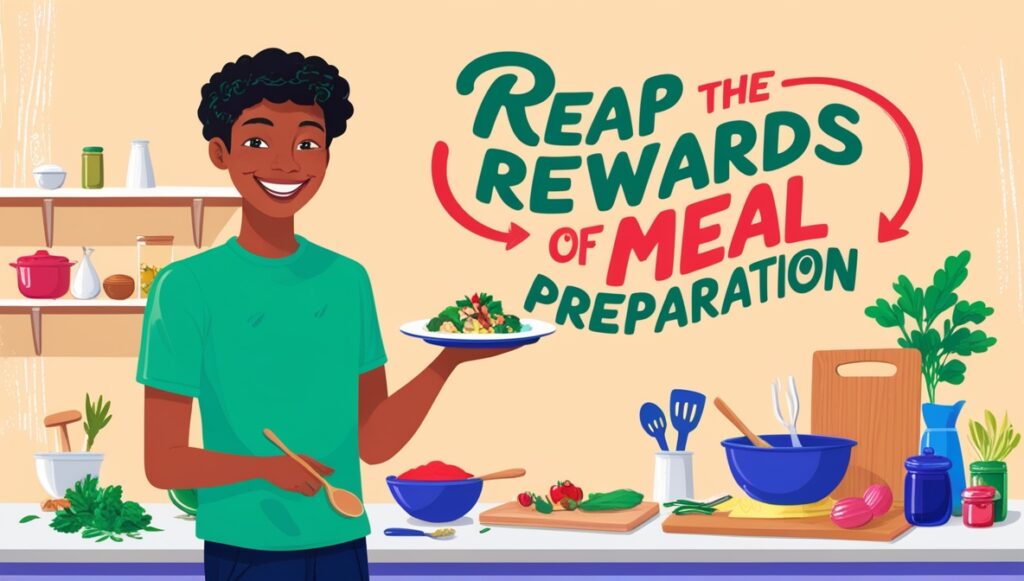
Meal prepping can transform your weekly routine, giving you control over your diet, schedule, and even budget. By dedicating time in advance, you can make daily meals more accessible and enjoyable, all while sticking to your wellness goals. Whether you’re prepping for a whole family or just yourself, the benefits of organization, health, and time savings are well worth the effort.
Ready to Begin?
Now that you understand the basics, it’s time to take action. Start small: plan a few recipes, gather your containers, and set aside a day for your first meal prep session. With practice, you’ll find your rhythm and discover a routine that works for you.
Feel empowered to experiment, and remember, the goal isn’t perfection—it’s progress. Embrace the journey, and before you know it, meal prepping will become second nature. Your future self will thank you for investing in your health, time, and peace of mind. Get started today and see how meal prepping can make your week easier, healthier, and more enjoyable!
Browse the quickmealsprep.com categories for plenty of ideas and recipes that help you prepare quick and delicious meals with ease.
When it comes to cooking, especially for busy individuals or families, meal preparation can be a game changer. By planning and preparing your meals in advance, you not only save time during the week but also ensure that you have healthy options readily available. This practice can help you avoid the temptation of fast food or unhealthy snacks when you’re short on time.For those looking to dive deeper into meal prep, the BBC offers a fantastic resource with a variety of meal preparation ideas and recipes. You can explore their collection here. This site provides practical tips and delicious recipes that can help you get started on your meal prep journey, making it easier to enjoy nutritious meals throughout the week.
FAQ:
1. What is meal prepping?
Meal prepping involves planning, preparing, and storing meals or ingredients ahead of time to simplify daily routines, save time, and promote healthier eating.
2. What are the main benefits of meal prepping?
Meal prepping saves time, reduces stress, supports healthier food choices, and cuts down on food costs by reducing the need for last-minute takeout.
3. What tools do I need to start meal prepping?
Key tools include sharp knives, a cutting board, a blender or food processor, measuring cups, and high-quality containers for storing meals.
4. How do I start meal prepping?
Begin by planning meals for the week, making a shopping list, and choosing recipes with overlapping ingredients. Dedicate a few hours each week to prepare and portion your meals.
5. How can I keep prepped meals fresh?
Use airtight containers, label with dates, and freeze meals that can last longer, such as soups and stews, to keep them fresh and reduce waste.
6. Can I meal prep for just one person?
Yes! Meal prepping is customizable to any portion size. Single servings allow variety, while batch cooking offers convenience and efficiency for multiple meals.
7. What if I get bored of the same meals?
Stay flexible by rotating recipes, experimenting with new cuisines, and trying customizable options like salads, stir-fries, and sheet pan dinners.
8. What types of meals are best for beginners?
Beginner-friendly meals include simple recipes like overnight oats, stir-fries, and sheet pan dinners. These are quick to prepare and easy to store.
